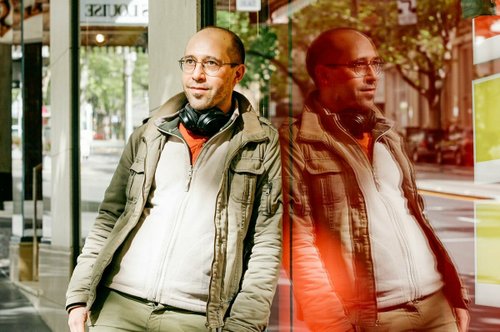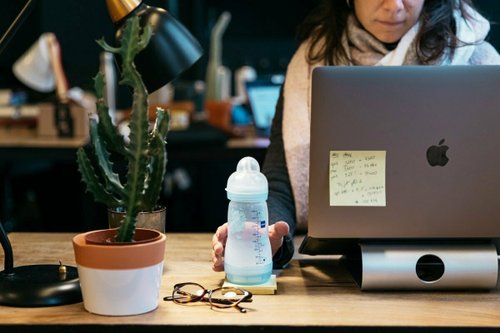Surviving the pandemic without government support
Jun 16, 2021
6 mins


Journalist
When bars and restaurants started to reopen in the UK this spring, Judi Heppell felt frustrated rather than excited. “It feels like living in a two-tier country, seeing all these people sitting outside, having their meals and their drinks because they can. And I cannot afford it,” she said.
The past year has been tough on Heppell, 60, who had been working as a translator from Spanish and Catalan into English for 20 years, mostly for hotels and cultural institutions. After the pandemic hit the UK in 2020 and the first lockdown measures were introduced, her clients started to cut their budgets. Soon she was out of work. Then she found out that she wasn’t eligible for any support from the government.
The millions left behind
Heppell is one of an estimated 2.9 million workers who have been excluded from the UK financial support schemes, according to a National Audit Office report published in October 2020. ExcludedUK, a pressure group set up for those left out of state support, estimates that more than three million people, or 10 percent of the workforce, didn’t receive anything.
About 1.8 million self-employed people and about 700,000 company owner-managers are not eligible for support through the scheme, according to a briefing note from the Institute for Fiscal Studies. Moreover, about 400,000 short-term contractors moving between jobs were ineligible. Some of the excluded have an employer, which means they could have been furloughed and receive financial support under the Coronavirus Job Retention Scheme (CJRS), but were made redundant instead.
State of shock: finding out you’re ineligible for support
Many of those who have fallen through the cracks are newly self-employed or earn less than half of their income through self-employment. The Institute for Fiscal Studies noted that someone with 51% of declared income from self-employment could claim the maximum, while someone with 49% could claim nothing. This was the case with Heppell who was ineligible for support because her widow’s pension was slightly higher than her income from translation. “The money coming into the household halved overnight but my bills and other expenses didn’t. However, I didn’t realize it would go on for so long. The government said that nobody would be left behind,” said Heppell, who lives in Brighton with her two children. Her pension barely covers the rent on the apartment. So to make ends meet, she has been borrowing money from her parents.
Katie Gillingham, 28, from Blandford Forum in Dorset, belongs to the category of newly self-employed. Gillingham has been working as a freelance copywriter since October 2018, after quitting a full-time job in marketing. When the first lockdown was announced in 2020, the agencies she was working for started to slash marketing and copyright budgets. “I could see this happening, I wasn’t surprised. The actual shock was that I wasn’t able to get help,” she said.
Gillingham was excluded for being newly self-employed. “I didn’t have enough tax self-assessments to prove that my income actually dropped in respect to 2019. I chose to go fully self-employed at the wrong time,” she said. For a long time, she felt that support was “on the horizon”. “It is difficult to pinpoint when I realized that the government was not going to be any help at all,” she said.
State of acceptance: Coping with being left out in the cold
Just like Gillingham, many thought that the government would fix gaps in its emergency coronavirus subsidy schemes or that the pandemic would not last for more than a couple of months. But then reality sank in.
Some managed to regain their confidence
Gillingham says that, at the beginning of the pandemic, she had some regrets about having gone freelance. But she managed to regain confidence in her work after the initial shock. She decided to use her time off to do a gardening course online. “It is such a cliche…in the pandemic, everyone took up gardening! But I always really enjoyed it and I thought that I wanted my writing to go in that direction in the future,” she said. “I realized eventually that I was always a bit scared of the worst thing happening when I went freelancing. And then the very worst thing happened, and I got out of it just fine.”
She acknowledges, however, that she was extremely lucky to be able to rely on her parents, with whom she lives, for financial support.
Some started to doubt their worth
For Heppell, being left without support affected the way she feels about her work and her status. “Not getting the same support as anyone else makes me feel less worthy. It’s like my work isn’t as fantastically important as the work of a person working in a council, for instance. I have also lost confidence in translating. I am afraid that I will not remember how to do it properly,” she said.
Some found their inner resilience
For Simon Paterson, 50, from Wales, coping with his new status meant getting a new job to be able to keep his business afloat.
Paterson had worked in the IT industry for 25 years, supporting colleges and schools across South Wales. In March 2018, he launched his own business: Gaming Squad, which delivered multi-player gaming parties to people’s doorsteps. For eight months, he tested the waters. He kept his regular job during the week and did parties on the weekends. But as the business grew, he decided to go all in. Then the first lockdown came. “We had a lot of parties booked in advance and I had to cancel all of them. I needed to refund people. On top of that, I live on my own so I had a mortgage to pay. I had bills to pay,” he said.
He decided to get another job as quickly as possible. He applied to work at a local supermarket, as a delivery driver, and in IT at the local NHS branch. Finally, he got a cleaning job with the NHS. “I hesitated as it wasn’t something I had done before, but I said yes after a couple of days,” he said.
When the financial support scheme for the self-employed was announced, he felt confident he’d get it. “I remember logging into the system in anticipation, putting in my details, and seeing I was not eligible for support. I just could not believe it,” he said. As a newly self-employed sole trader, he wouldn’t get anything. “They weren’t looking at my PAYE that I have paid my whole life, they just looked in my self-employed account and there was not much there,” he said. “For a week, it was a real struggle but I got my act together, I cut more costs and got more and more hours in the hospital and I just survived.”
State of acceptance: a post-lockdown perspective
Paterson’s tenacity paid off. In January he left his job with the NHS, and in early May 2021, he was able to reopen his business again. Today, he is almost fully booked. However, he needed some time to get used to his old work again. “Before Covid came along, I was a well-oiled machine, I knew exactly what I was doing…When I came back to work in May, I almost felt like I needed to ‘relearn’ how to do my business. It felt weird,” he said.
Gillingham was able to resume her work as well and has decided to diversify her portfolio. She is now in the process of opening a company with her sister. She has also been trying to support people who might feel lonely by writing them letters. “All the technology, social media, and online meetings have become very overwhelming for me at some point, so I started writing letters to some of my friends. Afterward, I offered the same in the Facebook group of the Excluded UK community,” she said. Two of the people who reached out have since become steady pen pals.
For many of the three million people who have been waiting for help for more than a year, life has been slowly returning to normal. But not everyone has been that lucky. Heppell still hasn’t got any work or support. The hopeless situation she’s found herself in pushed her to take action.
She’s written to her local MP multiple times and has recently penned a letter to Jesse Norman, financial secretary to the Treasury. The letter is a detailed account of the situation in which she and so many others have found themselves. She described writing and sending the letter as “a cathartic moment”.
“At no point has anyone in the Parliament ever explained why we have been left behind, why we have been excluded. The government needs to be held accountable and we need to be able to scrutinize them,” she said. Today, she hopes not just to be able to go back to work as soon as possible, but also to receive back payments from the government.
Photo: Welcome to the Jungle
Follow Welcome to the Jungle on Facebook, LinkedIn, and Instagram, and subscribe to our newsletter to get our latest articles every day!

More inspiration: The Covid crisis

Debate: Should we mandate vaccines in the workplace?
We asked two bioethicists to help us unpack the arguments on both sides and explain the ethical principles underpinning our public-health policy.
Mar 01, 2022

‘Don’t give up’: 262 days of working in lockdown in Melbourne
Melbourne just made the record for the most 'confined' city in the world. What's it like being a worker there? These professionals testify.
Nov 09, 2021

How the pandemic is driving a virtual tech boom
As the pandemic has accelerated the rise of remote work, it has also advanced the development of virtual technology, shaping the future of work.
Jun 08, 2021

How Covid is destroying the careers of mothers
Among Covid-19's countless victims are the careers of women forced to make the choice of leaving their jobs to care for their children and families.
Apr 22, 2021

Business travel: the view from the ground
Airlines are hopeful that business travellers will take to the skies again soon, but is that realistic?
Mar 10, 2021
The newsletter that does the job
Want to keep up with the latest articles? Twice a week you can receive stories, jobs, and tips in your inbox.

Looking for your next job opportunity?
Over 200,000 people have found a job with Welcome to the Jungle.
Explore jobs